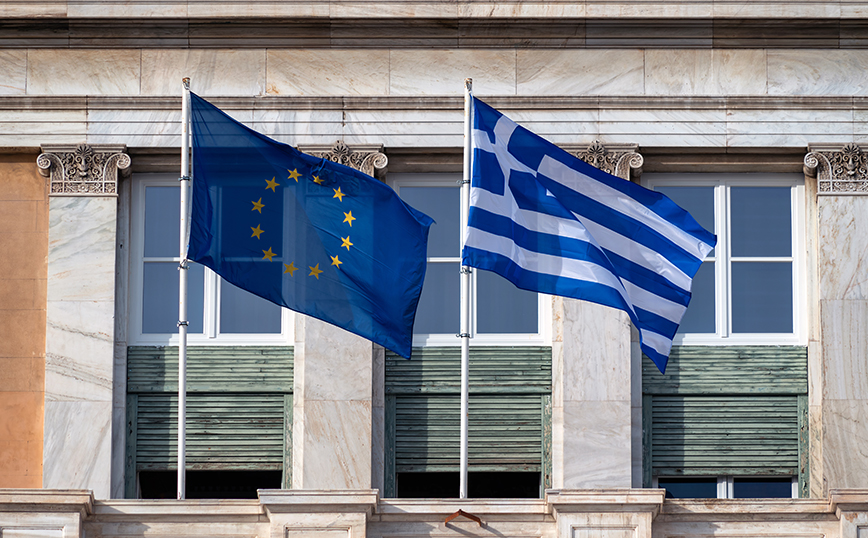
The survey identifies public health, economic support, and job creation, along with combating poverty and social exclusion, as the primary concerns for Greek voters, with each issue influencing 55% of the populace in their voting decisions. This sentiment reflects a broader European focus, where fighting poverty and supporting public health are central themes in the election campaign.
Greeks also appear particularly pessimistic about future prospects, with 48% believing that their standard of living will deteriorate over the next five years, compared to 32% across the EU. Additionally, a majority in Greece, along with respondents in France and Cyprus, feel that their living standards have worsened in the past five years.
In terms of priorities for the election campaign, European citizens overall rank fighting poverty and enhancing public health as top concerns, each capturing about one-third of the electorate’s focus. The importance of EU defence and security has also surged during the current parliamentary term, largely due to Russia’s war against Ukraine.
In Greece, the emphasis is on public health, economic support, and job creation, along with addressing poverty and social exclusion, underscoring the specific challenges and priorities facing Greek voters as they head to the polls.
Dissatisfaction with the state of Democracy prevails among Greeks
Recent findings from the Eurobarometer survey reveal a notable discontent among Greek citizens regarding the state of their republic, with 60% expressing dissatisfaction while only 39% feel satisfied. This sentiment extends to their views on the European Union, where 53% are dissatisfied compared to 41% who are satisfied.
The survey also highlights the importance placed on the Rule of Law, with respondents emphasising it as a critical value that the European Parliament should prioritise defending over the next five years.
Voter interest remains high, with 56% of Greeks indicating their intent to participate in the upcoming June European elections, closely aligning with the broader European interest at 60%. In a hypothetical scenario asking about the likelihood of voting if elections were held the following week, 76% of Greeks versus 71% of Europeans said they would vote. Furthermore, 78% of Greeks believe that voting has gained importance due to the current geopolitical climate, a sentiment slightly lower than the EU average of 81%.
The perception of the European Parliament is generally positive or neutral among 77% of Greeks, which is slightly lower than the EU average of 81%. However, a significant 73% of Greeks, compared to 56% of Europeans, would like to see the European Parliament play a more crucial role.
Regarding the impact of the European Union on daily lives, 73% of European citizens feel EU actions influence their lives, with Greeks reporting an even higher perception at 83%. Additionally, 70% of Greeks believe that the country has benefited from EU membership, reflecting a generally positive stance towards the EU.
These insights come at a crucial time as the European Parliament’s current term ends, with the next elections scheduled for June 6-9. The data underscores the critical perspectives and expectations of Greek citizens towards both national and European governance amidst a complex geopolitical landscape.
Perceptions of the EU among Greeks and Europeans
Recent Eurobarometer results shed light on how Greeks and Europeans view the European Union’s role. While 39% of Greeks hold a positive view of the EU, this figure is slightly lower than the EU average of 47%. The survey also indicates that 41% of Greeks have a neutral opinion of the EU, slightly higher than the 36% average across Europe, and 20% of Greeks view the EU negatively, compared to 17% of Europeans.
On the EU’s global significance, 38% of Greeks believe that the EU’s role on the international stage has grown in importance, aligning closely with the 40% of Europeans who share this view. However, 43% of Greeks feel that the EU’s role has remained the same, compared to 35% of Europeans. Notably, fewer Greeks (18%) than Europeans (22%) think that the EU’s role has diminished.
Looking forward, defence and security emerge as top priorities for the EU on the world stage, with 37% of EU citizens highlighting these areas. Energy issues, along with food security and agriculture, each draw 30% focus. In Greece, the emphasis is slightly different, with 38% prioritising competitiveness, economy, and industry, followed by 36% on food security and agriculture, and 35% on energy issues.
This Eurobarometer survey, conducted by the research institute Verian (formerly Kantar) from February 7 to March 3, 2024, across the 27 EU Member States, involved 26,411 face-to-face and video conference interviews. The results reflect the population size of each member state to ensure representative data.
______________________________________________
Are you seeking news from Greece presented from a progressive, non-mainstream perspective? Subscribe monthly or annually to support TPP International in delivering independent reporting in English. Don’t let Greek progressive voices fade.
Make sure to reference “TPP International” and your order number as the reason for payment.